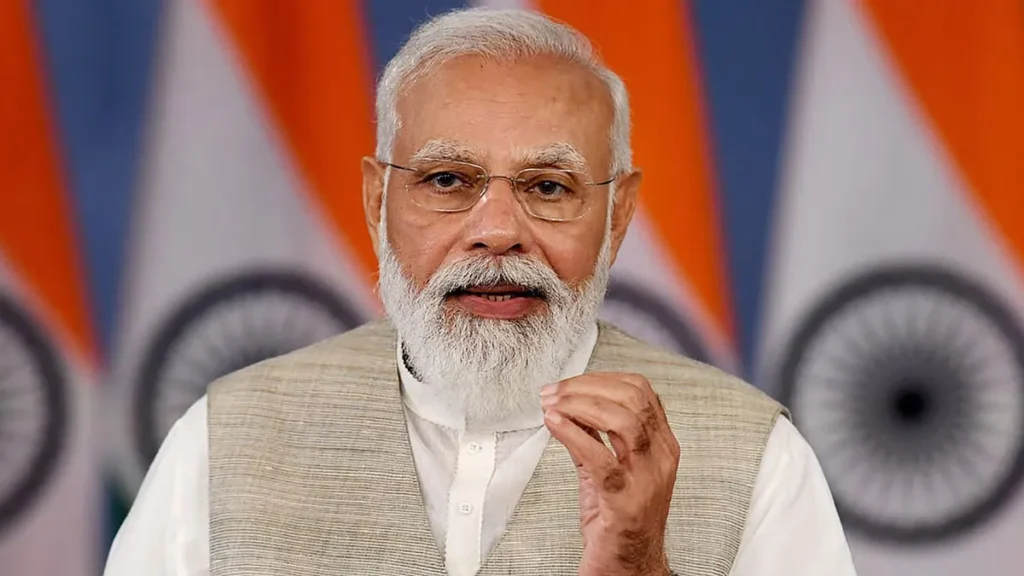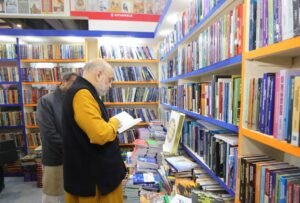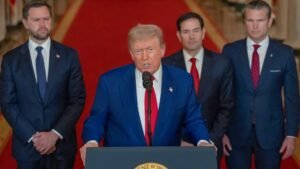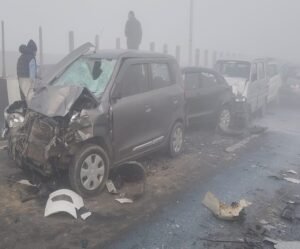PM Modi’s Argentina Visit: Why Buenos Aires is a strategic stop and what his agenda will be

Buenos Aires (Argentina) : Prime Minister Narendra Modi’s visit to Buenos Aires from 4-5 July marks a significant diplomatic engagement between India and Argentina, the first bilateral visit by an Indian Prime Minister to the South American nation since Indira Gandhi’s visit in 1968. The trip comes at a time when both countries are seeking to deepen cooperation in energy, critical minerals, defence and trade, while also reaffirming a shared position against terrorism. It also precedes the BRICS Summit in Brazil, positioning Argentina as an important stop in India’s broader outreach to Latin America and the Global South.
Strategic minerals, energy and a rebalanced trade equation
Argentina’s vast reserves of lithium, copper and shale gas have emerged as a key area of interest for India. Lithium, in particular, is essential to India’s clean energy ambitions used in batteries for electric vehicles and grid storage and Argentina is part of the ‘Lithium Triangle’ along with Bolivia and Chile. Indian state-backed firm KABIL (Khanij Bidesh India Ltd) has already secured rights for lithium exploration in Argentina’s Catamarca province and further announcements are expected during the visit.
Beyond minerals, Argentina’s growing capability in LNG and its untapped shale energy resources, second-largest shale gas reserves in the world, are now drawing attention in New Delhi. With traditional suppliers in the Gulf facing volatility, the Modi government is looking to diversify its energy sources and Argentine LNG is part of that equation. Buenos Aires has indicated interest in expanding LNG exports and attracting Indian investment in upstream sectors.
Trade ties widen beyond edible oils
Bilateral trade between India and Argentina crossed USD 5.2 billion in 2024, with India now among Argentina’s top six trading partners. While the trade basket has historically centred around edible oils particularly soybean oil there is growing interest in moving beyond agri-commodities.
Argentina is looking to import Indian pharmaceuticals, medical equipment and IT services, while New Delhi is pushing for access to Argentina’s agricultural markets for fruits, vegetables, dairy and grains. Both sides are expected to review trade imbalances and look at measures to improve two-way market access.
Argentina’s reform-minded President Javier Milei, who took office in December 2023, has signalled openness to economic partnerships beyond the West. With India pushing to revive trade negotiations with MERCOSUR, Argentina’s role is pivotal.
Defence, space and tech cooperation
The visit is also expected to expand discussions on defence collaboration. While still at an early stage, Argentina has shown interest in Indian-built defence systems, including the Tejas light combat aircraft. Talks may cover joint training, co-production and technology transfers.
In addition, Indian officials have confirmed that digital public infrastructure and telemedicine are also areas where cooperation may be scaled up. Argentina is said to be keen on learning from India’s experience in rolling out large-scale digital governance platforms and affordable healthcare delivery models.
Space and satellite technologies are also on the table. The Indian Space Research Organisation (ISRO) and Argentina’s CONAE space agency have previously worked together, and both sides see this visit as a chance to formalise future collaboration, especially for low-cost satellite deployment.

A common stand against terrorism
One of the more symbolic and politically important aspects of the visit will be a shared declaration on terrorism. Argentina was among the first countries to condemn the recent terrorist attack in Jammu and Kashmir’s Pahalgam area, where several Indian soldiers were killed.
Argentina was among the first countries to condemn the 29 June terror attack in Pahalgam, Jammu and Kashmir, in which several Indian soldiers were killed. For Argentina, which faced two devastating terror attacks in the 1990s, the 1992 Israeli Embassy bombing and the 1994 AMIA Jewish Centre bombing in Buenos Aires, there is a deeply personal understanding of the threat terrorism poses to democratic societies.
“We understand India’s pain. Terrorism is unacceptable in any form,” Argentine Ambassador to India Mariano Caucino said ahead of Modi’s visit. “We must act against those who support or shelter such elements.”
Rebuilding Mercosur ties
Argentina’s desire to reform Mercosur, the South American customs union, has added weight to India’s push for a deeper trade relationship with Latin America. While trade talks between India and Mercosur have been ongoing for years, Modi’s visit signals a fresh momentum.
“There is a common understanding that Mercosur needs to reform and connect to the world. India can be a key partner in that process,” Ambassador Caucino said.
Symbolism and significance
During his time in Buenos Aires, PM Modi is expected to pay tribute at the statue of General José de San Martín, Argentina’s independence hero, and participate in ceremonial and delegation-level talks. President Milei will host a state luncheon in his honour.
The visit comes just ahead of the BRICS summit in Brazil, where India is expected to push for broader engagement across the Global South. India and Argentina upgraded their ties to a Strategic Partnership in 2019. With this visit, the first by an Indian Prime Minister since Indira Gandhi in 1968 both sides are aiming to inject fresh momentum into a relationship built on shared democratic values, mutual economic interests, and a desire for multipolarity in global affairs.











